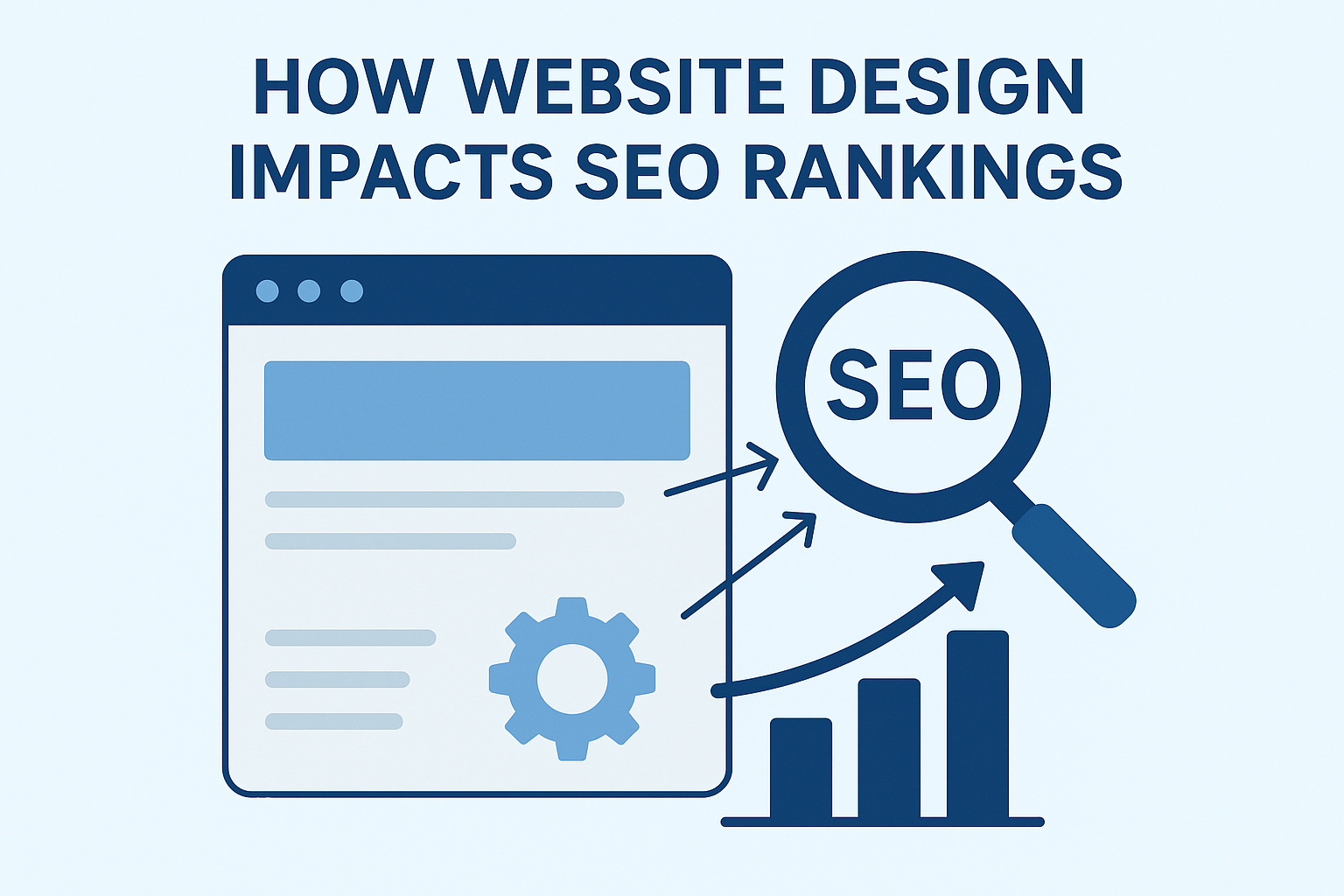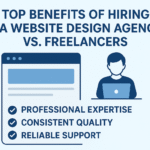Have you ever clicked a link, landed on a site that looked terrible on your phone, and quickly hit “back”? That tiny decision can hurt a website’s search rankings. In my years working as a digital marketer, I’ve seen even great content fail to rank because the web design services behind it were weak. In this blog, I’ll walk you through how website design impacts SEO rankings in simple terms, drawing on real experience, so you understand why investing in professional website design really matters for visibility.
What is a SEO?
SEO (Search Engine Optimization) is the art and science of making your website more visible in search engine results. It means structuring your site so that search engines like Google or Bing can easily understand and trust it. When your site is well optimized, it appears higher in search results for relevant queries. Good design doesn’t replace SEO — but poor design can hold your SEO back.
User Experience (UX) and SEO
Search engines aim to give users the best results. If users arrive and bounce quickly (leave the site fast), that sends a signal that the page is not helpful. A well-thought-out layout, clear menus, intuitive navigation, and meaningful internal linking all improve UX, which in turn reduces bounce rates and tells search engines your site is valuable. From my own client work, I’ve seen that redesigning the navigation alone boosted time-on-site by 30%, helping rankings for target pages.
Mobile-Friendly (Responsive Design)
Today, most users search on mobile devices. If your site doesn’t adapt to different screen sizes, it will be hard to read or use on phones. Search engines now index the mobile version first (mobile-first indexing). Therefore, responsive web design is no longer optional — it’s essential. A site that works well on desktop but breaks on mobile will struggle in rankings.
Page Speed and Performance
Speed matters. Slow pages frustrate users and search engines dislike delays. When a site takes too long to load, Google may lower its ranking. Optimizing images, reducing unnecessary scripts, using caching, and minimizing CSS/JS files all contribute. In one project I worked on, switching to a faster theme and compressing assets reduced load time by 40%, leading to noticeable SEO gains over a couple of weeks.
Readability & Content Presentation
Even if your content is excellent, if it’s cramped, tiny font, bad contrast, or paragraphs are too long, people won’t read. A clean layout with headings, bullet lists, readable fonts, and white space encourages users to stay. Search engines reward pages where users spend more time engaging with content. This is part of the role of professional website design making the content presentable and digestible.
Visuals, Media & SEO
Images, videos, and graphics make your site engaging, but they must be optimized. Use alt tags (descriptive text) for images, compress file sizes, and lazy-load media so it appears when needed, not all at once. Well-treated visuals boost both UX and SEO. If your custom website design services provider ignores media optimization, that could weaken your ranking potential.
Accessibility & SEO
Accessibility means designing your site so people with disabilities (e.g. visual impairments) can use it. Examples include having text alternatives, clear heading structure, keyboard navigation, and readable contrast. These practices also help search engines understand your content structure (via proper headings, alt text, etc.). Better accessibility often aligns with better SEO.
Trust, Branding & Conversion Signals
Search engines look beyond page content. If your site has clear branding, SSL certificate (https), about / contact pages, testimonials, and professional design elements, it builds trust. Trustworthy sites are favored. Also, design influences conversions — if users trust your site, they’re more likely to sign up, share, or link to you. For a brand like VdezineGlobal, emphasizing strong branding through business website design can lead to better user engagement and more inbound links — which further boost SEO.
Conclusion
In sum, website design impacts SEO rankings in many interconnected ways: usability, mobilefriendliness, speed, presentation, media handling, accessibility, and trust. Even with great content and keywords, a weak design setup can drag you down. When you choose affordable website design, Professional website design company, best website design service, or best website design agency, make sure they cover these technical and design fundamentals.
For those exploring upgrades or fresh builds, consulting a best company for website design like the team behind VdezineGlobal (which offers full digital marketing plus design) can give you an edge. Get your design right it lays the foundation on which your SEO can truly perform.


